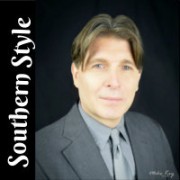A little fig goes a long ways
There were several things that folks could depend on in the valley below the Gravelly Spur Mountain, one was that the cool clear water of the Frog Leg Creek trickled its way from the springs upon the mountain and flowed crystal clear throughout the valley insuring that no one went without the liquid of life; the leaves always turned the valley into a patchwork quilt of yellows, reds and a smattering of auburn come fall; and the lovely and interesting and sometimes quirky Lola Roberts will have enough fig preserves to cover every biscuit from Jim Town to Burke and back again.
As young Pearl was coming of age, she spent more and more time with the valley’s elder stateswoman. Her tenacity and her uniqueness set her apart from everyone else. From the squirrels that kept her company by having free run of the house to the birds that roosted next to her porch that she knew by name, many thought she was more than different.
There was no one more vocal about the well being of the valley and its natural inhabitants, or the welfare of folks who were in need. She often took up the issues no one else wanted to tackle and forged ahead bringing the valley around to her thinking about things.
But when the large bushes on the hillside behind her cabin filled with plump rich figs there was no one that took more delight in picking each of those fruit.
This year was another time that Pearl got to tag along as the two ladies with woven baskets filled them until the could not hold another. Lola passed the time telling stories of the pioneers who first came across the Gravelly Spur and forged out a meager existence in the timber laden valley while fending off Indian attack.
She would point almost ceremoniously at the large black spot on the rear of her cabin below where a fiery arrow had hit its mark only to have Lola’s great grandfather, a boy of eight, to climb out the loft window and detach the burning arrow and dousing the fire with a chamber pot returning to the window safely.
She spoke of how the family brought the first two fig bushes into the valley and from it the entire grove was born.
When the baskets could hold no more figs, the tales would stop and the ladies made their way down the hillside to the garden area below where a large cast iron pot sat over a large wood fire.
Lottie carefully sorted the figs one by one culling those she didn’t like and saving them for her bird friends.
The rest were prepared and dropped into the pot of boiling water above the flames in the garden.
Basket after basket of figs was added until the cast iron could hold no more and then another pot was added.
The figs were cooked and cooked hours on end as Lola reached into a variety of cotton sacks where she stored her individual spices and secret ingredients gathered from her woodland walks until the mixture bubbled with just the right plopping sound.
When it was all just right the savory sugar filled dark brown solution was dipped again and again with a wooden gourd filling Mason jar after Mason jar.
Lola would then carefully tie a ribbon around each and every jar preparing them for her later holiday delivery where she would spread her figs around.
For almost all except Grandma Kitty this was a delectable and joyous gift but for Kitty she could not stand figs but did not have the heart to tell Lola, so she always received them graciously with a smile and added the jar to the collection tucked way back up in the cupboard where they could never be found again.
But Kitty could just not contain herself when she came home one afternoon and found planted next to her back porch three of the prettiest fig bushes that ever touched God’s rich dark soil.
The three were also a gift from Lola but not for Kitty, this time for young Pearl who had helped her steadily.
But Kitty could not contain her frustration insisting on the removal of the bushes banishing them to some distant corner of the far, where only the birds and animals could find them but Grandpa Bill, never being able to resist the pleas of young Pearl defended their placement.
To this day even long after the old house sits in ruin the great great grandchildren of Lola’s feathered friends still roost and peck at Ms. Lola’s figs by the Grandma Kitty’s back porch.
(A story from Randall’s book “A Mountain Pearl: Appalachian Reminiscing and Recipes”)


